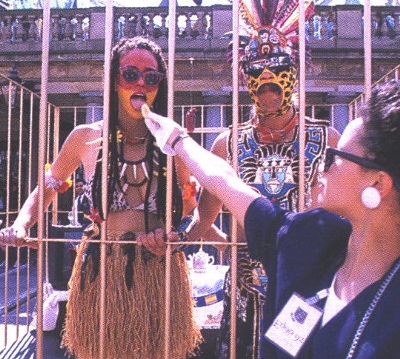Artist and writer Rikki Wemega-Kwawu wrote the sixth Project ‘1975’ ‘The Politics of Exclusion’. In this essay Wemega-Kwawu criticizes the fixation on Contemporary African Diaspora artists and the powerful position of curator Okwui Enwezor.
The Nigeria-born American curator Okwui Enwezor is often acknowledged as the representative of African art and artists. The first Johannesburg Biennale in 1997 and the Documenta XI in Kassel in 2002, are just two examples of the many exhibitions he organized. With these presentations and publications on the topic of African art, Enwezor played a crucial role in the production of a definition of contemporary African art. Wemega-Kwawu criticizes this definition in his Project ‘1975’ essay, as he signalizes an ‘Enwezor School’: a group of African artists, now living in the West, that are preferred and circulated well above their counterparts living in Africa. Wemega-Kwawu argues that Enwezor hereby defines contemporary African art by the artists’ experience of Diaspora: “as if nothing worthwhile is happening on the continent”. By the maintenance of this definition African artists living on the continent, are hindered to enter the international art scene. Click here to download Newsletter 125 ‘Tala Madani – The Jinn’ and to read Rikki Wemega-Kwawu’s essay ‘The Politics of Exclusion’.
Rikki Wemega-Kwawu (Ghana, 1959) lives and works as an artist and writer in Takordi, Ghana. He is alumnus of the Skowhegan School of Painting and Sculpture, Maine, U.S.A. In 2008, he was an Adjunct Professor in Art at the New York University – Accra, Ghana Campus, where he taught ‘postcolonial studio practices’.

